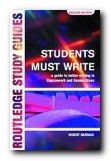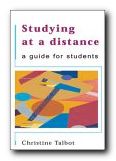sample from HTML program and PDF book
Search engines
1. Searching the internet is the quickest way to locate data when researching for an essay or term paper. For this you will need a search engine. The most popular without a doubt is Google, but there are others – such as Alta-Vista, Yahoo, and Infoseek.
2. Remember that anybody can put data on the Net. You need to evaluate the quality of the information you recover.
3. Always give full details of the source of any information you use. There are new conventions for citing electronic sources.
4. A search engine will scan its database (or the Net itself) for whatever word(s) you type in the FIND box. It will then return a number of ‘hits’ – possibly rated according to likely significance.
5. Most of the popular search engines use slightly different methods and databases. If you don’t find what you want with one, try another. Some will quote the first few lines of an extract.
Search techniques
6. Be as specific and ‘narrow’ as possible in defining your request. General and ‘wide’ requests will result in too many hits. For example…
7. Say you were researching pineapple production in Brazil in 1997. A search on ‘pineapple’ might result in 10,000 hits. You have ten thousand documents to evaluate!
8. But choosing ‘pineapples+Brazil+1997’ narrows the search to documents which include all these terms.
Boolean terms
9. Most search engines will recognise the use of terms which help you to narrow your request.
10. ‘Bacon AND tomato’ will locate documents which contain both these terms.
11. ‘Bacon OR tomato’ will locate documents which contain either of these terms.
12. ‘Bacon NOT tomato’ will locate documents which contain one term, but not the other.
13. You can also use keyboard symbols to refine a search. The wildcard [*] is powerful but should be used with care. A search for ‘Colum*’ would return Columbus, Columbia, Columbian, Column, and so on.
General points
14. Letter case doesn’t matter with most search engines. ‘Smith’, ‘smith’ and ‘SMITH’ are all the same.
15. Don’t assume the data you are looking for must be available on line.
16. Thousands of pages are added to the Web daily, but the total is still far less than the volume of printed material in big libraries.
17. Many search engines will now allow you to narrow your searches by
- language (Spanish, English French)
- date (in last 2/3 days, week, month)
- continent (co.uk, com.ca, ac.au)
- source (Web, newsgroups, companies)
© Roy Johnson 2003
Buy Writing Essays — eBook in PDF format
Buy Writing Essays 3.0 — eBook in HTML format
More on writing essays
More on How-To
More on writing skills
 Most people understand the rules. If you quote from somebody else’s work, you put the words in quote marks and acknowledge the source, either as part of your text or in an endnote or footnote. Details of
Most people understand the rules. If you quote from somebody else’s work, you put the words in quote marks and acknowledge the source, either as part of your text or in an endnote or footnote. Details of 

